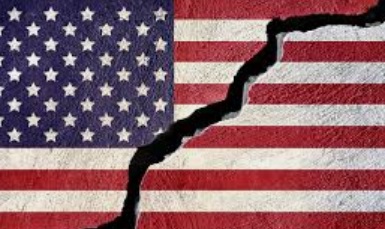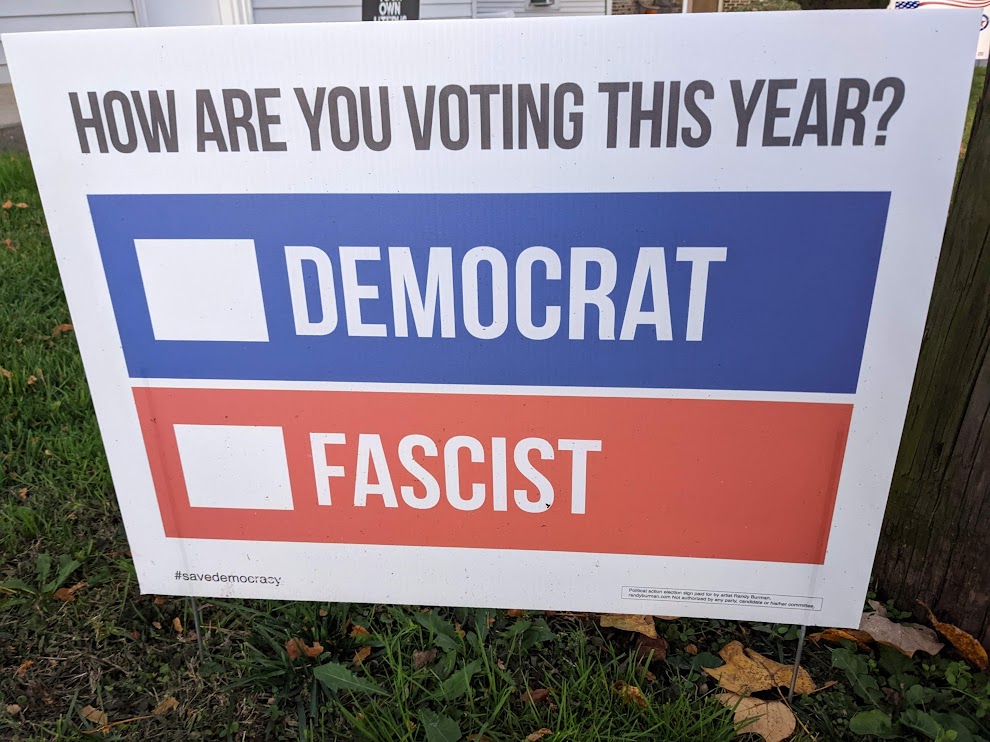Many articles talk about how polarized the United States has become. How the differences between red and blue, between Democrat and Republican, right and left – have grown deep and wide. How the gap can no longer be bridged, how the results of an election can barely be tolerated by the other side.

On October 20, 2022 Peter Coleman published his article in TIME Magazine titled:
The U.S. is Heading Toward a Second Civil War. Here Is How We Avoid It
Unfortunately the conservative/Republican mindset seems to be – that such a civil war is likely unavoidable, so before reading more than the title of the article, I expected it to be written by a liberal/Democrat. I expected the content of the article to describe ways to reign in the influence/opinions/freedom of speech for MAGA-style Republicans. As I read it, I realized that while a liberal (a professor at Columbia even) the author was not trying to reign in opposing points of view. He (having rushed into reading the article, I hadn’t looked for the author’s name at first, so surprise! – I expected the author to be female) described his efforts at listening to his conservative counterpart for an hour.
“I thought my decades of training as a conflict resolution scholar and mediator of difficult moral disputes prepared me for just such encounters. But I spent most of the hour before our date in distress in my bathroom…. I said that I was increasingly worried about the political divisions in our country and the growing odds of extreme political violence. I was doing my utmost to better understand different perspectives on the situation. He replied, ‘You mean, you don’t know any Republicans you can talk to.’ When I hesitated, he added, ‘Any Republicans that like Trump, that is.’
….I had tried to prepare for our walk. Anticipating an awkward and potentially volatile visit, I did a reflection exercise on my intentions for our time together, which prioritized the goals “listen openly and learn from him” and “avoid becoming too defensive and reactive.” I had also reviewed a chart on the critical differences between debate and dialogue, the latter being more a process of discovery than a win-lose game—a vital ingredient for initiating constructive political conversations today…. Occasionally, I would ask clarifying questions about points he made, or I would point out when we actually shared common concerns on issues such as gun control. But I also had to actively and repeatedly restrain myself from jumping in to counter points I viewed as misinformation or hyperbole. Instead, I found myself saying, “I see…” a lot….
OK, so what, right? Big deal. So, I took a walk in a park and talked politics with a neighbor for an hour. Is this what it will take to help our nation avert another civil war? To heal our furious, heavily-armed society? No. Not a chance…. It was just one aspect of a month-long experiment that a small group of worried, well-intentioned Americans piloted together this past summer. I am a researcher who studies what it takes for deeply-divided societies like ours to change course for the better.”
(end of quote)
So…. while I’m glad the author wasn’t condemning the views of the other side and inciting further division or demonization…. I’m disappointed it seems like there was zero change in the author’s views as a result of this conversation, given that one of his stated goals was to “learn from him.” I thought that meant learn facts from what he would say, not “learn from him” in the way Jane Goodall learns about lesser primates by observing or interacting with them – from a superior position.
But no gap was even slightly bridged by an hour of intentional conversation. At no point did the author say that this neighbor with opposing views made a great point, or that the conservative had convinced him to change his opinion with new facts he had never considered, or even made him question a single opinion or belief he already held. Instead, the entire article was self-praise and virtue-signaling for what a good job the author did by reaching out and listening. But as I finished the article I felt disappointed that he seemed to merely document opposing thoughts, rather than let his own defensive walls down and actually consider opposing arguments and – heaven forbid – re-think his own opinions.
Am I being too negative? Should I place more value on the fact that a liberal reached out to have a discussion with a conservative, even if it seems he didn’t deeply consider anything that was said and just used the experience to promote his book? If you feel his conversation was wonderful progress consider:
Coleman is a professor of psychology and education at Columbia University. He is the founding partner of Starts With Us, a movement to overcome extreme cultural and political divisions in America, and his latest book is The Way Out: How to Overcome Toxic Polarization
While searching for images using the terms: “second American civil war” I found many bizarre maps depicting an America broken into two or often many more nations. (It reminds me of a dream I had as a child many decades ago, in which I was a student in a poor, rural, elementary school classroom in the center of the United States, maybe in what used to be Oklahoma, with a map of North America showing the United States broken into six regions, including the one I was in dominated by Texas, which had shifted its primary language to Spanish in my vision of future events.) I also found more articles about this second civil war subject. Major Garrett and David Becker, on September 20, published:
How the Second Civil War Could Start: The potential U.S. descent into violence, mutual suspicion, and even dissolution.
The Bulwark website claims to be non-partisan but their article contained a few things that show the leanings of the authors: “In Texas, a law passed that set new restrictions on mail-in ballot access, limited the use of drop boxes for early votes, and then went further by weaponizing and empowering hyperpartisan poll watchers to interfere with the voting process.” Another part included: “When asked if the midterm elections would be legitimate, Biden said: ‘Well, it all depends on whether we are able to make the case to the American people that some of this is being set up to try to alter the outcome of this election.’ Biden’s statement wasn’t as toxic as Trump’s [which wasn’t quoted, it was just more toxic], but it deepened confusion and consternation—setting the country up for months of midterm election fear-mongering.” “In the months leading up to the November election, Trump and the circle of grifters that surrounded him continued to push, and profit from, The Big Lie (Trump’s multifaceted yet groundless vilification of the 2020 election).” Sure, the article at Bulwark seems completely non-partisan…
There are many books covering this topic of a coming second American Civil War from either the perspective of a present-day warning or from the fictional perspective of a future analysis of how it happened:
The Second American Civil War – Year Zero – by James Howell … The complete history of the Second American Civil War 2024 – 2030 – by Rene Jax … The Second Civil War – by Roy Santoro … Summary of The Next Civil War by Stephen Marche – by Rita Bennett … The Second American Revolution/Civil War – by Rick Joyner … The Next American Civil War: The Populist Revolt against the Liberal Elite – by Lee Harris …The Next Civil War – by Michael Nowland
There are more….
But the most real, most in-your-face sign I have seen is literally a sign in a yard in my home town:

Of course, the party calling the other side fascist is the one with extensive ties and cooperation between their side of the aisle in government and the major corporations and media outlets pushing their viewpoints and agendas – the textbook definition of fascism. Nothing new about the pot calling the kettle fascist though, everybody is Hitler when they don’t share your views these days. Which brings us back to: can we bridge the gap, or are we already too divided and polarized? I hope America chooses a sane path of progress without another Civil War. But is everyone too emotional, or is there a bipartisan way to make most people more logical? (That last part was hard to type without laughing, sadly.)
Is a second American Civil War the only way this will inevitably end? Time will tell.
